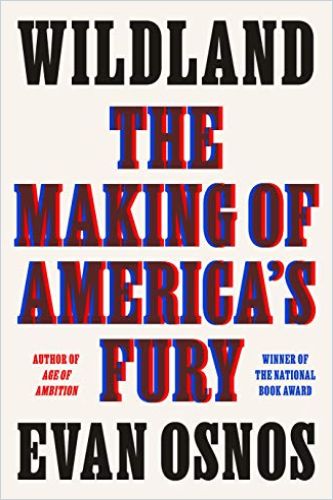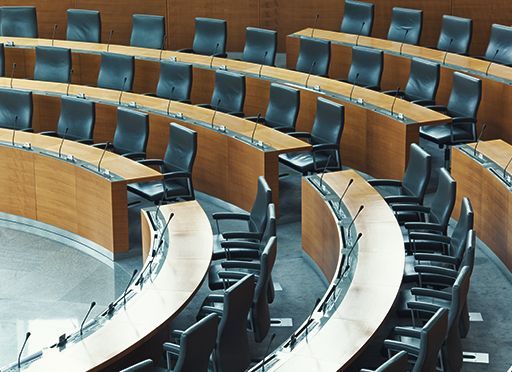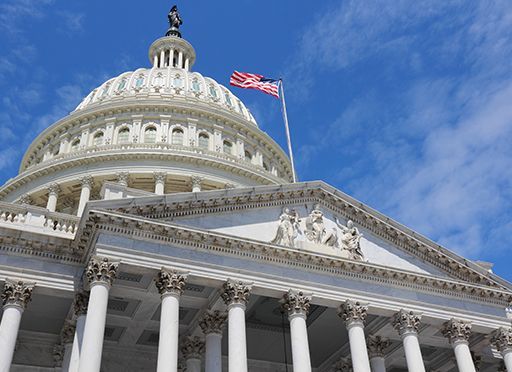Renowned political journalist Evan Osnos charts the steady decline in American communal values that he perceives resulted in Donald Trump’s presidency.

An Inevitable Crisis
In this sweeping study of America’s cratered political landscape, acclaimed journalist Evan Osnos parses Donald Trump’s rise. Osnos concludes that the United States has long teetered on the edge of populism and that rising income inequality, the increasing hopelessness of the poor, white resentment and widespread disinformation have lit a spark that caused an inferno. Osnos’s analysis proves affecting, timely and thought-provoking, if powerfully partisan.
Resentment and Anger
California’s 2018 Mendocino Complex Fire began when a rancher used a steel hammer to drive a metal spike into the ground to seal a subterranean wasp nest. This usually harmless action created a single spark that started a conflagration. Osnos argues that America’s political climate awaits only a spark to burst into flame.
The United States had the largest economy in the world, with median incomes higher than they had ever been, but the living standards for millions of people had declined or stagnated. Evan Osnos
He cites income inequality as a crucial ingredient in the political tinderbox. In corners of West Virginia, for example, expected male lifespans dropped to 64 years – 18 years fewer than those of men living in suburban northern Virginia, and similar to life expectancies in Iraq. Paranoia and conspiracy theories grip the populace, and gun ownership has soared.
Upward Mobility
Fully 90% of Americans born in 1940 earned more than their parents did. But by the early 2000s, Osnos relates, only half of newly born Americans could expect to outearn the previous generation. The World Bank reported that, as of 2018, China offered greater potential for upward mobility than the United States did.
The economy of influence in Washington was unlike that of almost anywhere else in the universe of advanced democracies.Evan Osnos
Rich Americans avail themselves of high-level educations, tax advice and investment counsel. Bill Gates, Warren Buffett and Jeff Bezos have amassed fortunes that eclipse the cumulative net worth of the bottom half of the US population. Wealthy Americans invest in policies that protect their interests. Conservative casino billionaire Sheldon Adelson, for example, poured $93 million into the 2012 elections. The right-wing Koch brothers and their peers put $889 million into the 2016 election cycle.
Americans understand, Osnos believes, that plutocrats control the political process, and so people respond with apathy. Serious public discourse has disappeared. Osnos cites the fact that 2,100 US newspapers stopped publishing between 2005 and 2020. Political messaging has grown ever more reductive: A bumper sticker supporting Senator Mitch McConnell of Kentucky read only “COAL. GUNS. FREEDOM.”
Racial Disparities
During the 20th century, millions of Black Americans moved from the South to northern cities – many to Chicago – to escape racist Jim Crow laws. But Chicago lenders refused Black borrowers seeking mortgages. Interstate highway construction in the 1950s and 1960s reinforced racial borders.
Overall, white and Black families in Chicago were moving in fundamentally opposite economic directions.Evan Osnos
Chicago’s racial divide has only worsened. In 2007, the city’s white middle class earned an average of $20,000 a year more than their parents had, while the Black middle class took in $9,000 less than theirs had earned. Fully 181,000 mostly middle-class Black residents left Chicago between 2000 and 2010. Killings of young Black men were rampant, and many joined gangs and ended up in prison. America’s penitentiary population has exploded, from 200,000 in 1973 to 1.4 million in 2020.
A century and a half after the Civil War, America was again a cloven nation.Evan Osnos
Young Black voters supported Senator Bernie Sanders in the 2016 primaries. But in the 2016 general election, many Black people didn’t bother to vote, especially in the battleground states of Michigan and Wisconsin.
West Virginia
In 2013, West Virginia – some 94% white – was home to the nation’s least-educated population. In the 1930s, the United Mine Workers of America had 800,000 members; by 2013, the union’s membership had shrunk by 97%. Workers with mining skills could no longer find jobs – they had to compete with teens for work in restaurants and call centers.
The steady loss of status – what scholars called the ‘hidden injuries of class’ – lay in plain sight around Appalachia.Evan Osnos
Some Republicans considering Mitt Romney’s loss in the 2012 presidential campaign thought the GOP had to appeal to minorities. An influential analyst argued instead that Republicans needed a candidate who would inspire the 6.5 million white voters who didn’t vote in 2012. Republicans eyed West Virginia, historically a Democratic stronghold, as a swing state. Republican strategist Karl Rove saw voters there as “pro-life, pro-prayer and pro-gun.” In 2016, Trump beat Hillary Clinton by 42 points in West Virginia, yet 43% of the state’s voters didn’t vote.
White Resentment
When Donald Trump entered the presidential race in 2015, he found Republicans eager to embrace his message of white resentment. When Trump referred to Mexican immigrants as criminals and “rapists,” the establishment recoiled – which strengthened Trump’s appeal to his blue-collar base. Radio commentator Rush Limbaugh dubbed conservative white voters “the new oppressed minority.”
The money and the message for an outsider candidate could come from Palm Beach and Greenwich, but the crowds would have to come from somewhere else.Evan Osnos
Trump attracted Americans who felt unmoored from the global economy and who believed that Washington, DC, elites had forgotten them. The Republican establishment didn’t embrace Trump at first, but GOP stalwarts knew a winner when they saw one.
Logic vs. Violence
President Abraham Lincoln’s moral argument against human enslavement vaulted him to the presidency. But reason went only so far – Lincoln’s victory led to the Civil War and his own assassination.
Since the ancient Greeks, effective politics had combined spectacle and substance, and Trump had discovered that, with the right spectacle, people would follow him almost anywhere on the substance.Evan Osnos
The battle between reason and violence continues. Republicans back the myth of election fraud, and defying the truth has become an ideology. America still remains vulnerable to the smallest spark.
Passion and Dispassion
Osnos writes with passion about America’s destructive excesses and injustices, while he dispassionately cites his supporting facts. He grounds his overview in compassion for the suffering American working class and in loathing for those who exploit that suffering. Osnos regards Trump not as an aberration but as almost a historical inevitability, given the trends Osnos reports. Even the most rapid Trump acolyte will have difficulty arguing with Osnos’s perceptive study of the collapse of the American community and the resulting aftershocks.
Evan Osnos’s first book, Age of Ambition, won the National Book Award. He is also the author of Joe Biden: The Life, the Run, and What Matters Now.





